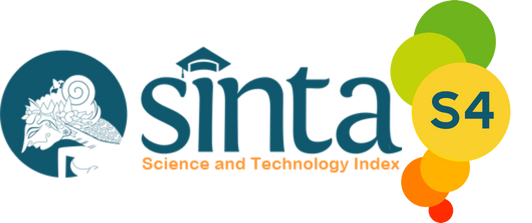RUNTUHNYA WATAK POLIMORPIK KIAI DALAM KULTUR MASYARAKAT MADURA
Relation between a kiai, and his people as visualized on Madura culture, became a reality that deserve further reviewed by particularly concerning the tides especially about change the configuration relation patron-clien factors. Indeed, when viewed in passing; relation that is a derivative and obedience residents madura kiai that tends towards (fanatics-doctrine) having very small opportunities for change. However, after reformation era, piecemeal society also starting to separated, be two camps that face each other. They are support one kiai to opposed kiai which incidentally is having problems with kiai being patron of them. Changing the pattern of relationships kiai and people in the tribe of madura in the era of reform, at least will also have important implications, although the implications of the most real this time only on political dimensions. Relationships between kiai and the community in madurese, can be said as patron-client relationships, having characteristics that clients will honor and obey the patron without reserve. In addition, model of leadership that looked at relationships between kiai and the community in madura often known by term pholimorphic, is a leader who has an important influence in some field at once. This fact automatically make people madura impressed favoring one kiai and opposed other kiai, who is from madurese cultural ambivalence prevailing earlier.
Downloads
References
Benda, Harry J., The Cresent and The Rising Sun: Indonesian Islam under The Japanese Occuption 1942-1945, terj. Daniel Dhakidae, Bulan Sabit dan Matahari Terbit: Islam Indonesia Pada Masa Pendudukan Jepang (Jakarta: Pustaka Jaya, 1985).
Boland, BJ., Pergumulan Islam di Indonesia 1945-1970, terj. Safroedin Bahar (Jakarta: Gaffiti Press, 1985).
Burhanuddin, Tamyiz, Akhlak Pesantren; Solusi Bagi Kerusakan Akhlak (Yogyakarta: Ittaqa Pres, 2001).
De Jonge, Huub (ed.), Agama Kebudayaan dan Ekonomi: Studi-studi Interdisipliner Tentang Masyarahat Madura (Jakarta: Rajawali Press, 1989).
_________. "Stereotypes of the Madurese" dalam K. Van Dijk, dkk., (ed.)., Across Madura Strai: The Dynamics of an Insular Society (Leiden: Koninklijk Intsitut voor Taal, -Land en Volkenkunde KITLV- Press, 1995).
Falaakh, M. Fadjrul, “Pesantren dan Proses Sosial Politik Demokrasi”, dalam, Marzuki Wahid, dkk., (ed.), Pesantren Masa Depan; Wacana Pemberdayaan dan Transformasi Pesantren (Bandung: Pustaka Hidayah, 1999).
Feillard, Andree, NU vis-a-vis Negara: Pencarian Isi dan Makna (Yogyakarta: LkiS, 1999).
Ja’far, Suhermanto, “Relasi Kuasa Kiai Khos dengan Kiai Kampung“, makalah tidak diterbitkan (Surabaya: LP3eSDAM dan Pemprop Jatim, 2008).
_________. Pasang Surut Politik Kaum Sarungan (Yogyakarta: Kanisius, 2009).
_________. Polemik tembakau di Pulau Garam (Surabaya: LPPM Dinamika, 2004).
Jazilah, Siti Nur, “peran politik kiai di era reformasi”, Tesis tidak diterbitkan (Yogyakarta: UIN Sunan Kalijaga, 2005).
Kahin, George Mc. Turnan, Refleksi Pergumulan Lahirnya Republik Nasionalisme dan Revolusi Indonesia, terj. Nin Bakdi Soemanto (tk.: Pustaka Sinar Harapan dan Sebelas Maret University Press, 1995).
Kerr, William Durrel, Leadership and Communication in the Collective Adoption Process of Development Association in Fastern Nigeria,'.
Korver, A. P. E., Sarekat Islam: Gerakan Ratu Adil? (Jakarta: Graffiti Press, 1985).
Mansurnoor, Lik Arifin, Islam in an Indonesian World; Ulama of Madura (Yogyakarta: Gadjah Mada University Press, 1990).
Moesa, Ali Maschan, Kiai & Politik Dalam Wacana Civil Society (Surabaya: LEPKISS, 1999).
Muthmainnah, Jembatan Suramadu: Respon Ulama Terhadap Industrialisasi (Yogyakarta: LKPSM, 1998).
Noer, Deliar, Gerakan Modern Islam di Indonesia 1900-1942 (Jakarta: LP3ES, 1980).
Van Bruinessen, Martin, NU: Tradisi-Relasi Kuasa dan Pencarian Wacana Baru, terutama bab “NU dan Orde Baru, Hubungan yang tak Mengenakkan” (Yogyakarta: LkiS, 1994).
Wahid, Abdurrahman, Menggerakkm Tradisi; Esai-esai Pesantren (Yogyakarta: WS, 2001).
Wiyata, A. Latief, "Masyarakat Madura dan Interaksi Antar Etnik", dalam Aswab Mahasin, dkk., (ed.), Ruh Islam Dalam Budaya Bangsa: Aneka Budaya di Jawa (Jakarta: Yayasan Festival Istiqlal, 1996).
Wiyata, A. Latief, Carok: Konflik Kekerasan dan Harga Diri Orang Madura (Yogyakarta: LKiS, 2002)
Downloads
Section
License

This work is licensed under a Creative Commons Attribution-NonCommercial 4.0 International License.
This work is licensed under a Attribution-NonCommercial 4.0 International (CC BY-NC 4.0).

























 Al'Adalah licensed under Creative Commons Attribution-NonCommercial 4.0 International License.
Al'Adalah licensed under Creative Commons Attribution-NonCommercial 4.0 International License.